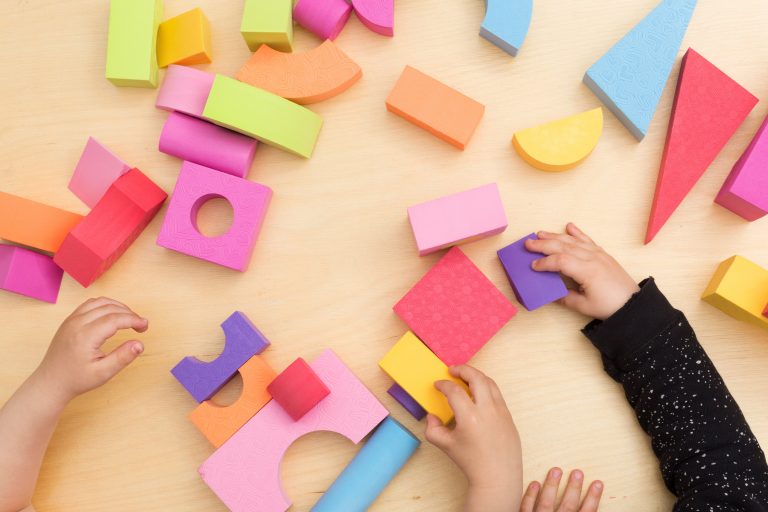Pre-School Curriculum for Licensing

We recognise the need for a holistic learning for young children in the Nursery and Kindergarten level. Our curriculum is carefully planned to arouse children’s curiosity towards their surroundings and to discover their potential through learning. We also ensure that our curriculum employs elements of fun for children to interact with their peers and educators. While educators play an important role in in classrooms, parents play a vital role at home. Our curriculum engages parents in their children’s development to facilitate a continuous learning environment at home.
Pre-School Curriculum
The pre-school curriculum caters to children in Nursery 2, Kindergarten 1 and Kindergarten 2 levels. The curriculum is designed with a thematic approach to teaching and learning, which emphasises active engagement and experiences. These are centred around themes that are relatable to their surroundings; leading to inquiry, investigations, discovery and hands-on explorations.
Holistic goals, development of life skills, dispositions and attitudes towards learning, as well as cognitive competency are promoted through integrated components and activities. This system is further enhanced through process-oriented learning and the acquisition of knowledge, concepts and skills for pre-schoolers.
Specific goals are clearly expressed through a set of pre-requisites which outline what children are expected to learn effectively for their holistic development, life skills independency and school readiness. These goals are translated into six key learning experiences:
- Language and Literacy (Writing, Reading & Communicating)
- Numeracy (Mathematical Concepts & Skills)
- Aesthetics & Creative Expression (Art Appreciation, Music & Movements)
- Discovery of The World (Environmental and Community Awareness)
- Social and Emotional Development (Self-Concept & Social Skills)
- Motor Skills Development (Gross Loco Motor & Fine Motor Skills)
Objectives and Goals
“Learning objectives and success criteria are the fundamental tolls that allow children to engage in their learning. The learning objectives need to relate to what you want the children to learn.” (Dunn, D. 2012)
We have developed our pre-school curriculum based on five key principles and beliefs; where active, curious and competent minds are successfully integrated into our Nurturing Early Learners (NEL) Framework.
1. Planning
We believe that every child is an individual who must be nurtured, encouraged, and developed to his or her fullest potential.
Children regardless of social status, race, religion, or national origin, should be given ample opportunity to thrive in a safe and conducive environment that will foster his or her holistic development.
2. Facilitating
We believe that educators are facilitators who are involved in the children’s learning process by extending their pre-knowledge into quality, meaningful and purposeful interactions with unlimited opportunities.
3. Observing and Assessing
We believe that children learn through exploring and hands-on experiences which allow them to be curious by collecting, documenting and interpreting knowledge acquired.
4. Reflecting
We believe that early childhood education should be progressive, professional and reflective towards life-long learning.
5. Collaborating
We recognise and support the critical role parents and the community play in the lives of their children by promoting meaningful and sustainable home-school-community partnerships.
The Pre-school Curriculum includes:
1. Full year (Term 1 to Term 4) detailed Lesson Plans catering to Nursery 2, Kindergarten 1 and Kindergarten 2.
2. 24 progressive themes; each unit theme to be holistically explored in a
span of 4 weeks covering 6 main learning domains from the MOE’s Nurturing Early Learners (NEL) Framework.
3. Detailed Lesson Guides – Unit Plan Inventory (UPI), Brainstorm Webs and Integrated Subject Webs.
4. Interesting Activity Templates, Games and Appendices for teachers to replicate for teaching resources.
5. Comprehensive Teaching and Learning Resources e.g. Counters and Bean Bags, etc are provided to support the lesson plans.
6. Lesson Evaluation List
7. Child Portfolio Templates
8. Holistic Developmental Checklist Templates
To learn how to get started with our curriculum, please get in touch with us via contact@cpdsingapore.com
